In 2013, there were just four distilleries operating in Ireland, but soon after, something happened. An uisce beatha revival, of sorts. Within three years, there were suddenly 16 distilleries in operation. By 2022, there were 42.
Despite the news that Irish Distillers Ltd is planning to halt their Midleton production for up to three months in April, and that last November Waterford Distillery were entering into a receivership, a report (March 2025) from the Irish Whiskey Association says exports of the spirit continue to be strong; having surpassed a value of €1 bn in 2024.
The latest figures from both Bord Bia and the International Wine and Spirits Record (IWSR) are also positive, showing an excess of 15 million cases in Irish whiskey sales for 2024.
This is great news, but the fact remains: operation costs combined with a general downturn in global whiskey consumption are taking their toll on distilleries.
With these challenges facing the industry, innovation is needed to help keep costs low and weather the storm. However, when it comes to Irish whiskey, Irish cream liqueur or poitín, innovation can be difficult due to the rules and regulations attached to their Geographical Indication (GI) status.
GI means a product originates from a specific region; the quality or essence of the product is directly related to its place of origin; and at least one production step takes place within said region. This leaves little room for Irish distillers to play with methodology or ingredients.
However, this hasn’t stopped Irish distilleries from innovating. Irish Country Living spoke with two who are leading the way in product development and sustainability while keeping with the traditions of their craft.
Mourne Dew Distillery
Distilling is in Donal Farrell’s blood, but he is likely the first of his family who has made a living from making spirits, well, “legally”.
“One of my grandfathers was born in 1859, he obviously passed before I was born, so I never knew him, but he had a reputation as a poitín-maker – and so did his father – so I thought it would be nice to come full circle and start a distillery of my own,” he says with a smile.
That’s exactly what he did, founding Mourne Dew Distillery in 2017.
Here, Donal and his team produce two Irish whiskeys (one single malt and one blended) as well as gin, vodka, poitín and liqueur.
Born and raised in Rostrevor, Co Down, Donal practised as a barrister for years before turning to spirits – and it was actually his work in law which sparked the idea for his new venture.
“It was a criminal case with DNA evidence,” Donal explains. “I was asking a forensic scientist how they extract DNA from dried blood on clothing [for example] and he explained how they use special vacuum equipment and a series of solvents.
"Boiling points are much lower in a vacuum and the solvents gently strip away all other chemicals in a sample until you’re left with an undamaged DNA molecule. I came away thinking, ‘that’s ingenious’. I started wondering if you could do something similar in a food or drink-related way. It just sat in my head.”
One of my grandfathers had a reputation as a poitín-maker – and so did his father – so I thought it would be nice to come full circle and start a distillery of my own
All of this wondering led Donal to develop the cold distillation process that they have now perfected at Mourne Dew Distillery. As opposed to a conventional hot system, where you are heating stills under atmospheric pressure at temperatures up to 100°C, Donal’s cold stills operate at a much lower rate of atmospheric pressure and heat to a maximum of 30°C.
Through this gentle process, flavour molecules aren’t subject to head damage; resulting in what Donal and his team believe to be a superior product. The cold stills are also considerably more sustainable when it comes to energy use.
Over the years, they have developed their own equipment and created purpose-built stills, which they say are fundamentally different to cold stills used anywhere else in the world. In the near future, they hope to manufacture and market these stills for other distilleries to purchase.
“[Our system] uses a lot less energy,” Donal says. “On balance, we are cutting our energy consumption by around 50% per litre of spirit produced.”
On 4 March, Donal and his team were honoured at the annual Irish Food Writers Guild Awards for Mourne Dew Distillery’s The Pooka Poitín Hazelnut liqueur.
Donal says he and everyone at the distillery were delighted with the win. The Guild praised the product for its smooth, delicate and natural flavour; which is entirely derived from roasted hazelnuts.
“It’s an unusual spirit,” he says, smiling. “It’s a liqueur, technically, because straight poitín needs to be 40% ABV and ours is 35%. I enjoy it over ice, but also in desserts, like a tiramisu.”
See mournedew.com
Ahascragh Distillery
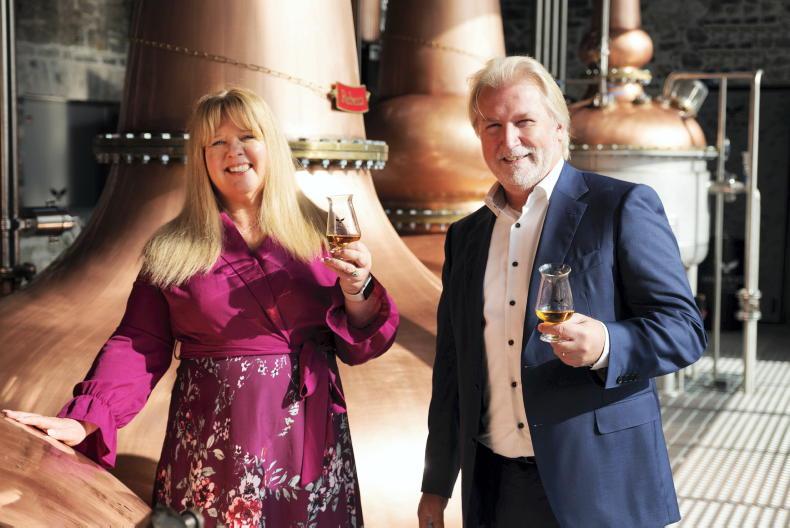
Gareth and Michelle McCallister own and operate Ahascragh Distillery in Co Galway.
Further west, you’ll find another distillery taking a sustainable approach to spirit production.
Ahascragh Distillery is also known as Ireland’s first zero-energy-emissions distillery. They produce whiskey and gin in their eco-distillery; a historic, refurbished mill in the village of Ahascragh, Co Galway. Gareth and Michelle McCallister launched the distillery in 2023.
Gareth says, from the very beginning, sustainability was a top priority for them.
“We knew we didn’t want to build from scratch, so converting the old mill was a natural choice – even though it wasn’t the most efficient or cost-effective approach,” he explains.
“The mill’s status as a protected structure added complexity, as every step had to be approved and supervised by Galway City Council’s conservation officer, who was incredibly supportive throughout the process.
“The mill itself guided our renewable approach,” he continues. “It had originally run on hydroelectric power, so using renewable energy felt like a natural continuation.
"At first, we planned for a small, fossil-fuel-free distillery, but as we progressed, it made sense to scale up production to maximize the potential of our heat pump system.”
Ahascragh’s heat recovery system allows Gareth and Michelle to save 1,690 tonnes of CO2 per year and will cut overhead costs by approximately 40% over a 20-year period. Like their whiskey, their sustainability journey will also improve with age.
A former shoe shop now houses our café, and our milling, bottling, and dispatch areas are in an old hardware store that had been derelict for years
Social sustainability comes into the business model too. Being rurally located, the McCallisters want to ensure the distillery is good for the community, putting Ahascragh on the Irish tourism map.
“A former shoe shop now houses our café, and our milling, bottling, and dispatch areas are in an old hardware store that had been derelict for years,” Gareth says.
“The community has been incredibly supportive of the distillery, café, and our new Clan Colla restaurant. We’re hoping to bring more visitors to Ahascragh to enjoy the tours, our spirits, and the local experience.”
Like the distillery itself, Gareth and Michelle aim to balance tradition and modern craftsmanship to their line of spirits. They say they aim to push boundaries in terms of flavour boundaries, cask innovation and ageing technique.
“We are driven by the ambition to change how Irish whiskey and gin are produced by decarbonising the energy process, tightly monitoring our water usage, sourcing local ingredients, and using the most sustainable packaging possible,” Gareth says.
“The vision is to craft not only world-class spirits, but also a legacy of responsible and eco-friendly practices.”
See ahascraghdistillery.com
Read more
‘I have dreamed of getting a Michelin star since I was 14’
"It's not a smoke house you're running here; it's Love Island!"
In 2013, there were just four distilleries operating in Ireland, but soon after, something happened. An uisce beatha revival, of sorts. Within three years, there were suddenly 16 distilleries in operation. By 2022, there were 42.
Despite the news that Irish Distillers Ltd is planning to halt their Midleton production for up to three months in April, and that last November Waterford Distillery were entering into a receivership, a report (March 2025) from the Irish Whiskey Association says exports of the spirit continue to be strong; having surpassed a value of €1 bn in 2024.
The latest figures from both Bord Bia and the International Wine and Spirits Record (IWSR) are also positive, showing an excess of 15 million cases in Irish whiskey sales for 2024.
This is great news, but the fact remains: operation costs combined with a general downturn in global whiskey consumption are taking their toll on distilleries.
With these challenges facing the industry, innovation is needed to help keep costs low and weather the storm. However, when it comes to Irish whiskey, Irish cream liqueur or poitín, innovation can be difficult due to the rules and regulations attached to their Geographical Indication (GI) status.
GI means a product originates from a specific region; the quality or essence of the product is directly related to its place of origin; and at least one production step takes place within said region. This leaves little room for Irish distillers to play with methodology or ingredients.
However, this hasn’t stopped Irish distilleries from innovating. Irish Country Living spoke with two who are leading the way in product development and sustainability while keeping with the traditions of their craft.
Mourne Dew Distillery
Distilling is in Donal Farrell’s blood, but he is likely the first of his family who has made a living from making spirits, well, “legally”.
“One of my grandfathers was born in 1859, he obviously passed before I was born, so I never knew him, but he had a reputation as a poitín-maker – and so did his father – so I thought it would be nice to come full circle and start a distillery of my own,” he says with a smile.
That’s exactly what he did, founding Mourne Dew Distillery in 2017.
Here, Donal and his team produce two Irish whiskeys (one single malt and one blended) as well as gin, vodka, poitín and liqueur.
Born and raised in Rostrevor, Co Down, Donal practised as a barrister for years before turning to spirits – and it was actually his work in law which sparked the idea for his new venture.
“It was a criminal case with DNA evidence,” Donal explains. “I was asking a forensic scientist how they extract DNA from dried blood on clothing [for example] and he explained how they use special vacuum equipment and a series of solvents.
"Boiling points are much lower in a vacuum and the solvents gently strip away all other chemicals in a sample until you’re left with an undamaged DNA molecule. I came away thinking, ‘that’s ingenious’. I started wondering if you could do something similar in a food or drink-related way. It just sat in my head.”
One of my grandfathers had a reputation as a poitín-maker – and so did his father – so I thought it would be nice to come full circle and start a distillery of my own
All of this wondering led Donal to develop the cold distillation process that they have now perfected at Mourne Dew Distillery. As opposed to a conventional hot system, where you are heating stills under atmospheric pressure at temperatures up to 100°C, Donal’s cold stills operate at a much lower rate of atmospheric pressure and heat to a maximum of 30°C.
Through this gentle process, flavour molecules aren’t subject to head damage; resulting in what Donal and his team believe to be a superior product. The cold stills are also considerably more sustainable when it comes to energy use.
Over the years, they have developed their own equipment and created purpose-built stills, which they say are fundamentally different to cold stills used anywhere else in the world. In the near future, they hope to manufacture and market these stills for other distilleries to purchase.
“[Our system] uses a lot less energy,” Donal says. “On balance, we are cutting our energy consumption by around 50% per litre of spirit produced.”
On 4 March, Donal and his team were honoured at the annual Irish Food Writers Guild Awards for Mourne Dew Distillery’s The Pooka Poitín Hazelnut liqueur.
Donal says he and everyone at the distillery were delighted with the win. The Guild praised the product for its smooth, delicate and natural flavour; which is entirely derived from roasted hazelnuts.
“It’s an unusual spirit,” he says, smiling. “It’s a liqueur, technically, because straight poitín needs to be 40% ABV and ours is 35%. I enjoy it over ice, but also in desserts, like a tiramisu.”
See mournedew.com
Ahascragh Distillery

Gareth and Michelle McCallister own and operate Ahascragh Distillery in Co Galway.
Further west, you’ll find another distillery taking a sustainable approach to spirit production.
Ahascragh Distillery is also known as Ireland’s first zero-energy-emissions distillery. They produce whiskey and gin in their eco-distillery; a historic, refurbished mill in the village of Ahascragh, Co Galway. Gareth and Michelle McCallister launched the distillery in 2023.
Gareth says, from the very beginning, sustainability was a top priority for them.
“We knew we didn’t want to build from scratch, so converting the old mill was a natural choice – even though it wasn’t the most efficient or cost-effective approach,” he explains.
“The mill’s status as a protected structure added complexity, as every step had to be approved and supervised by Galway City Council’s conservation officer, who was incredibly supportive throughout the process.
“The mill itself guided our renewable approach,” he continues. “It had originally run on hydroelectric power, so using renewable energy felt like a natural continuation.
"At first, we planned for a small, fossil-fuel-free distillery, but as we progressed, it made sense to scale up production to maximize the potential of our heat pump system.”
Ahascragh’s heat recovery system allows Gareth and Michelle to save 1,690 tonnes of CO2 per year and will cut overhead costs by approximately 40% over a 20-year period. Like their whiskey, their sustainability journey will also improve with age.
A former shoe shop now houses our café, and our milling, bottling, and dispatch areas are in an old hardware store that had been derelict for years
Social sustainability comes into the business model too. Being rurally located, the McCallisters want to ensure the distillery is good for the community, putting Ahascragh on the Irish tourism map.
“A former shoe shop now houses our café, and our milling, bottling, and dispatch areas are in an old hardware store that had been derelict for years,” Gareth says.
“The community has been incredibly supportive of the distillery, café, and our new Clan Colla restaurant. We’re hoping to bring more visitors to Ahascragh to enjoy the tours, our spirits, and the local experience.”
Like the distillery itself, Gareth and Michelle aim to balance tradition and modern craftsmanship to their line of spirits. They say they aim to push boundaries in terms of flavour boundaries, cask innovation and ageing technique.
“We are driven by the ambition to change how Irish whiskey and gin are produced by decarbonising the energy process, tightly monitoring our water usage, sourcing local ingredients, and using the most sustainable packaging possible,” Gareth says.
“The vision is to craft not only world-class spirits, but also a legacy of responsible and eco-friendly practices.”
See ahascraghdistillery.com
Read more
‘I have dreamed of getting a Michelin star since I was 14’
"It's not a smoke house you're running here; it's Love Island!"





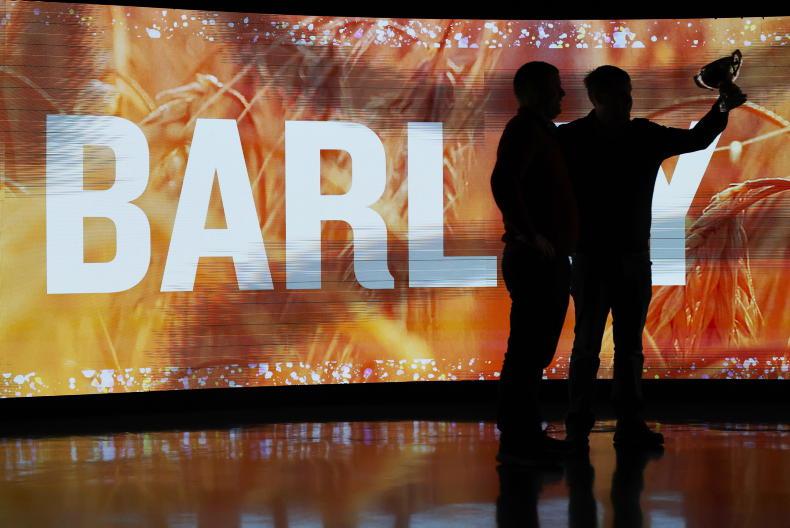
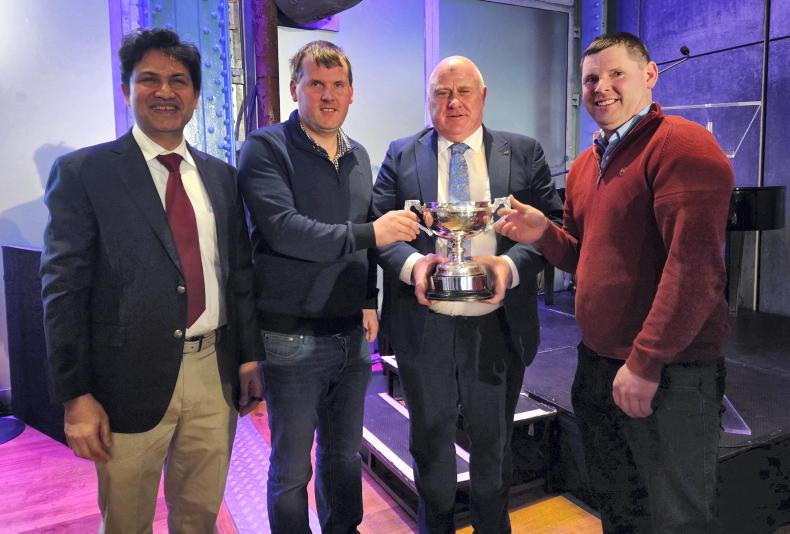
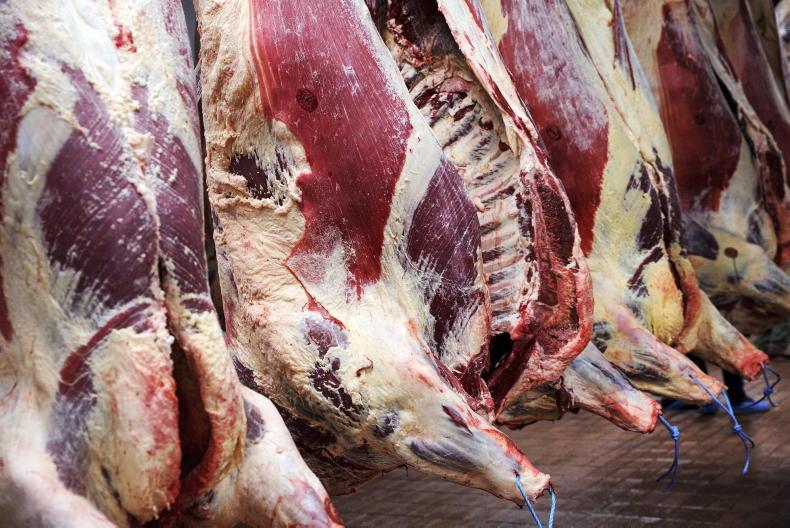
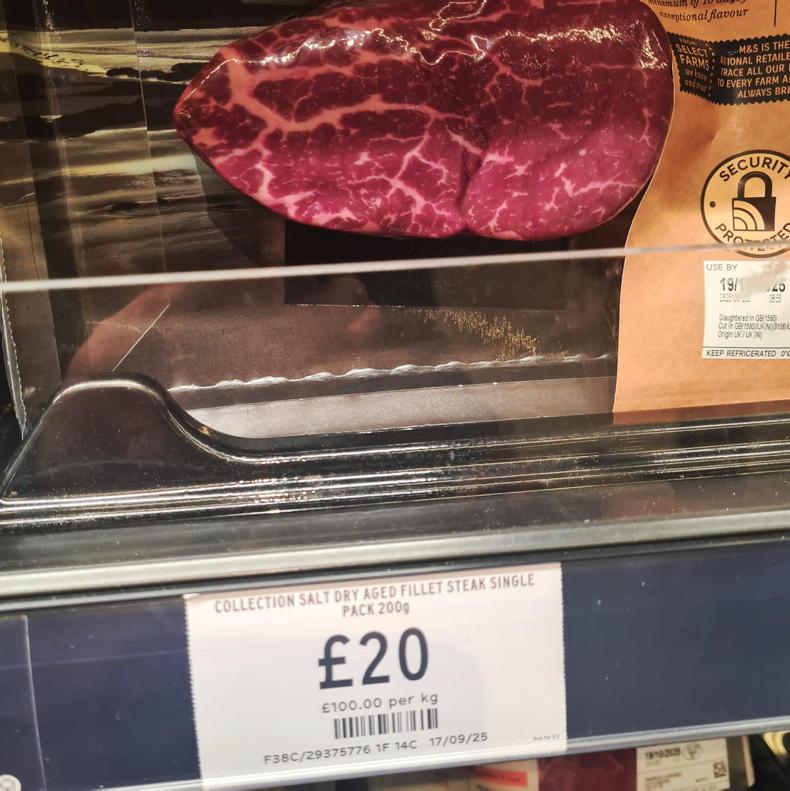
SHARING OPTIONS